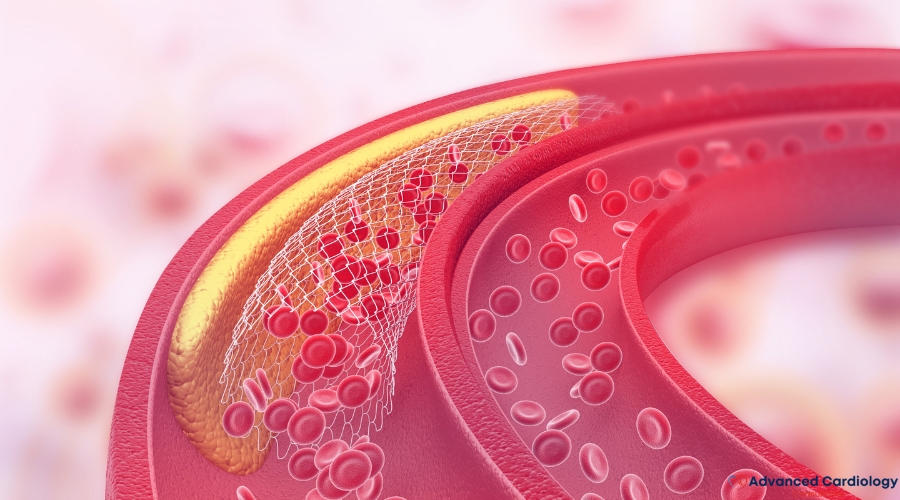Cholesterol plays a significant role in our overall health. Despite its bad reputation, our bodies need cholesterol to build cells and produce certain hormones. However, too much of it can lead to heart disease. If you're interested in managing your cholesterol levels through your diet, this blog will guide you through some proven strategies and food choices that can help lower cholesterol levels.
Understanding Cholesterol

First, it's important to understand the two main types of cholesterol: Low-Density Lipoprotein (LDL), often called "bad" cholesterol, and High-Density Lipoprotein (HDL), referred to as "good" cholesterol. LDL cholesterol contributes to fatty buildups in the arteries (atherosclerosis) and is associated with an increased risk of heart disease. Conversely, HDL cholesterol carries LDL cholesterol back to your liver, where it's removed from your body.
Dietary Approach to Lowering Cholesterol

When it comes to diet, the goal is generally to decrease LDL cholesterol and increase HDL cholesterol. Here's how you can adjust your eating habits:
1. Limit Saturated and Trans Fats: These types of fats raise your total cholesterol and LDL cholesterol. Saturated fats are found primarily in red meat and full-fat dairy products. Trans fats, on the other hand, are in foods made with hydrogenated oils and fats, such as stick margarine, baked goods, and processed snack foods.
2. Increase Omega-3 Fatty Acids: Omega-3 fatty acids don't affect LDL cholesterol, but they have heart-healthy benefits, including reducing blood pressure. Fish, walnuts, flaxseeds, and chia seeds are excellent sources of omega-3 fatty acids.
3. Increase Soluble Fiber: Soluble fiber can lower LDL cholesterol. Good sources of soluble fiber include oats, barley, fruits, vegetables, lentils, beans, and psyllium.
4. Add Whey Protein: Whey protein, found in dairy products, may account for many of the health benefits attributed to dairy. Studies have shown that whey protein can lower both LDL cholesterol and total cholesterol while also lowering blood pressure.
5. Consume More Plant Sterols or Stanols: Foods fortified with sterols or stanols can help lower LDL cholesterol. They are found in foods like margarine spreads, orange juice, and yogurt drinks.
An Example of a Heart-Healthy Diet: The Mediterranean Diet
The Mediterranean diet is frequently recommended as a heart-healthy eating plan and has been associated with lower levels of LDL cholesterol. This diet emphasizes:
- Eating fruits, vegetables, whole grains, and healthy fats, such as olive oil
- Consuming lean protein, such as fish and poultry
- Limiting red meat and sweets
- Incorporating physical activity and enjoying meals with family and friends
The Role of Lifestyle and Exercise

Diet is just one aspect of cholesterol management. Regular physical activity can also boost your body's HDL cholesterol while increasing the size of the particles that make up your LDL cholesterol, which can help prevent artery blockage. Strive for at least 30 minutes of exercise most days of the week. Let's take a deeper dive into how lifestyle changes and regular exercise can help lower cholesterol and reduce the risk of heart disease.
The Importance of Regular Exercise
Regular physical activity can help lower cholesterol in several ways. Here's how it works:
Boosts 'Good' Cholesterol: Exercise increases the level of High-Density Lipoprotein (HDL), or 'good' cholesterol, in your body. HDL cholesterol helps carry Low-Density Lipoprotein (LDL), or 'bad' cholesterol, back to your liver, where it is removed from your body, preventing it from building up in your arteries.
Lowers 'Bad' Cholesterol: Physical activity not only reduces your LDL cholesterol, but it also decreases your total cholesterol. The more intense the activity, the greater the benefits, but even moderate exercise can have a positive impact.
Reduces Triglycerides: Exercise can also reduce the level of triglycerides, a type of fat in your blood that can raise your risk of heart disease when levels are high.
To reap these benefits, aim for at least 30 minutes of moderate to vigorous exercise most days of the week. This could include brisk walking, swimming, cycling, or participating in a fitness class.
Other Lifestyle Changes for Lowering Cholesterol
While regular exercise plays a significant role in lowering cholesterol, other lifestyle changes can also contribute to maintaining healthy cholesterol levels:
Quit Smoking: If you smoke, consider this as another reason to quit. Quitting smoking can improve your HDL cholesterol levels, lower your blood pressure, and decrease your risk of heart disease.
Maintain a Healthy Weight: Carrying extra weight contributes to high cholesterol. Losing even 5-10% of your body weight can significantly reduce cholesterol levels.
Limit Alcohol Intake: While moderate alcohol consumption can potentially increase HDL cholesterol, it does not lower LDL cholesterol. Moreover, too much alcohol can lead to high blood pressure, heart failure, and an increased calorie intake.
Stress Management: Chronic stress may contribute to higher cholesterol levels. While more research is needed to understand the exact link, it's known that stress can indirectly affect cholesterol levels by influencing poor eating habits and leading to other heart health risks.
Healthy Eating Habits: Alongside regular exercise, incorporating a diet rich in fruits, vegetables, lean proteins, healthy fats, and whole grains can help manage cholesterol levels. Limiting intake of saturated and trans fats, cholesterol, sodium, and added sugars is also beneficial.
A Holistic Approach to Lower Cholesterol
Lowering cholesterol levels is a key factor in reducing the risk of heart disease, and it requires a holistic approach that combines a healthy diet, regular exercise, and lifestyle modifications. Remember, before starting any new exercise program or making significant lifestyle changes, it's always a good idea to speak with a healthcare provider.
Creating and sticking to healthier habits can seem challenging at first, but remember, every step you take towards a healthier lifestyle helps in maintaining better heart health. Here's to your heart, and to living a healthier, happier life!
Conclusion
Lowering cholesterol is a key part of maintaining heart health, and the food you eat can have a significant impact. By understanding which foods can help manage cholesterol and incorporating them into a balanced, heart-healthy diet, you can take proactive steps toward better health.






